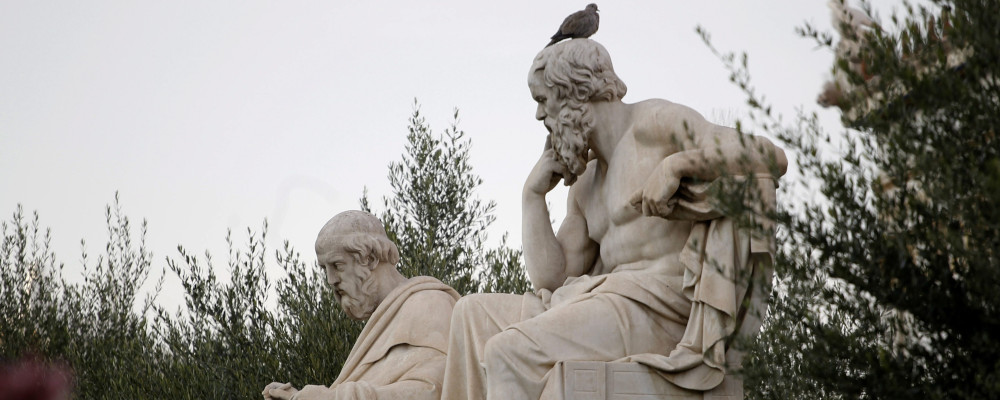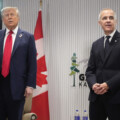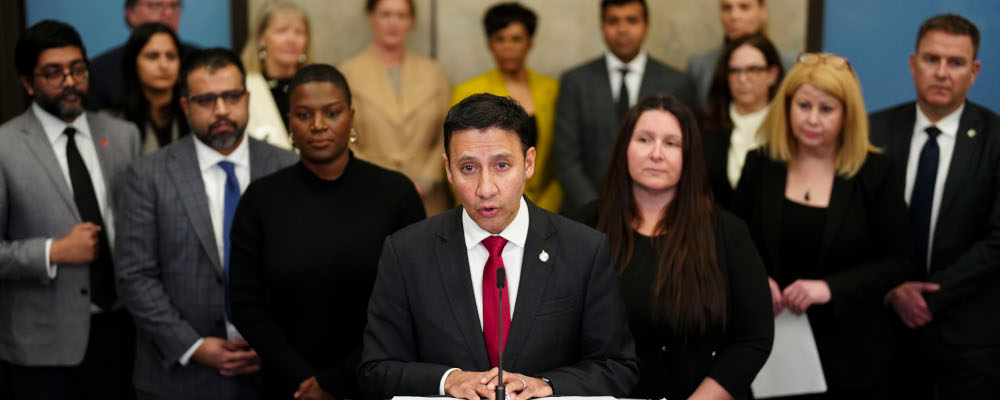They may not have realized it, but the drafters of Bill C-63, the legislation Justice Minister Arif Virani introduced last week that would enact the government of Canada’s Online Harms Act, have intervened in a philosophical debate at least as old as Plato.
This debate concerns the relationship between knowledge and political authority and can be summed up as follows: if one’s claim to wield political authority rests upon knowledge, how do we ourselves know that a given ruler or government possesses the right knowledge?
With its expansion of laws governing “hate speech” and strengthening of the regulatory regime that oversees them, Bill C-63 doesn’t so much as answer these questions as steamroll over them.
There are two fundamental problems here. The first is that not all matters of dispute are resolvable in this manner because certain issues are political by their very nature. Is it for example genocide denial to inquire into the validity of claims of mass graves on residential school sites? Is it criminal bigotry to ask whether a prepubescent child is a good candidate for surgical intervention? The point is not that there is necessarily a correct answer to this and other questions, but rather that one cannot rule certain positions out of bounds in the absence of the kind of authority that can only derive from the political process.

Every parent will at some point resort to the logic of “Because I said so” (and, speaking as a parent, I am supremely grateful for this option), but the authority of a democratic government is different from the authority of a parent, not just in degree but in kind. Our rulers are not our qualitative superiors, but (in theory, at least) people like ourselves. Indeed, it is we who authorize them to speak on our behalf; we do not rely on them to authorize our ability to speak.
Hence the second fundamental problem: attempts to resolve these kinds of disputes by fiat represent the replacement of politics with administration and robust democratic deliberation with bureaucratic oversight. In this case, we’ll get a “Digital Safety Commission,” along with a separate “Digital Safety Ombudsperson,” to sort out these messy political disputes.
One defender of the bill even argues, “Don’t worry—Prime Minister Justin Trudeau won’t be the judge. It will be the tribunal who has expertise in identifying hate.” One can only picture here the government agent in Raiders of the Lost Ark telling Indiana Jones: “We have top men working on it right now!”
But this delegation is a kind of shell game, designed to obscure the most fundamental political questions: who rules, and on what authority? Indeed, for all his demonstrable flaws, Prime Minister Trudeau has a far more plausible claim to democratically represent the interests and preferences of Canadians than any “expert tribunal.”
Others have rightly pointed out the bill’s potential for abuses, as well as its illiberal approach to fundamental questions of freedom of expression. But it’s worth noting how it indicates a larger and deeply troubling trend in how our elites conceive of politics in a democracy. For this bill is not just a bad idea in its own right; it reflects the habits of mind of an entire political class that believes that technocratic expertise can stand in for democratic debate. Indeed, their position seems to be that certain subjects are too dangerous to be left to the people to hash out with one another in public forums.
We already saw during the COVID-19 pandemic how this high-handed form of governance could go awry, and it appears this government has learned nothing from that experience.

This does not mean that there is no such thing as hatred or political extremism. Indeed, any functioning society has a need to declare certain behaviours out of bounds. But it does mean that how we define such terms is inseparable from the political commitments we already hold. For, one cannot answer such questions without committing to a particular political understanding. Consequently, the advocates for the Online Harms Act are assuming a consensus on its substance at the outset, thus relieving themselves of the burden of actually convincing the public while gaining an advantage for their own political commitments in the process.
Similarly, the Act maintains a complaints process that operates as a parody of civic virtue, encouraging ordinary people not to engage more directly in political life to persuade fellow citizens of their point of view, but rather to leverage the powerful machinery of the federal government for their personal grievances.
As it happens, we already have a pretty good solution for the dilemma posed by Bill C-63: to leave such matters to the political arena where they can be hashed out by an engaged democratic citizenry. And this solution might be applied to quite a number of areas—from crime prevention to energy to immigration policy and beyond—that have lately become the exclusive domain of dubious experts of various stripes.
As for the general unpleasantness that frequently accrues to online spaces, a solution is at hand for that as well—one that has the added benefit of strengthening overall mental health and well-being: log off and go outside.
Recommended for You

The Notebook by Theo Argitis: Trump halts trade talks, Carney’s trade-offs and John McCallum’s legacy

Lydia Perovic: The future of history looks bleak, if Toronto’s museums are any indication

The Weekly Wrap: The Liberals must abandon their internet regulation agenda

‘A direct attack’: The Roundtable on Trump’s surprise trade announcement and Canada’s immigration debacle



